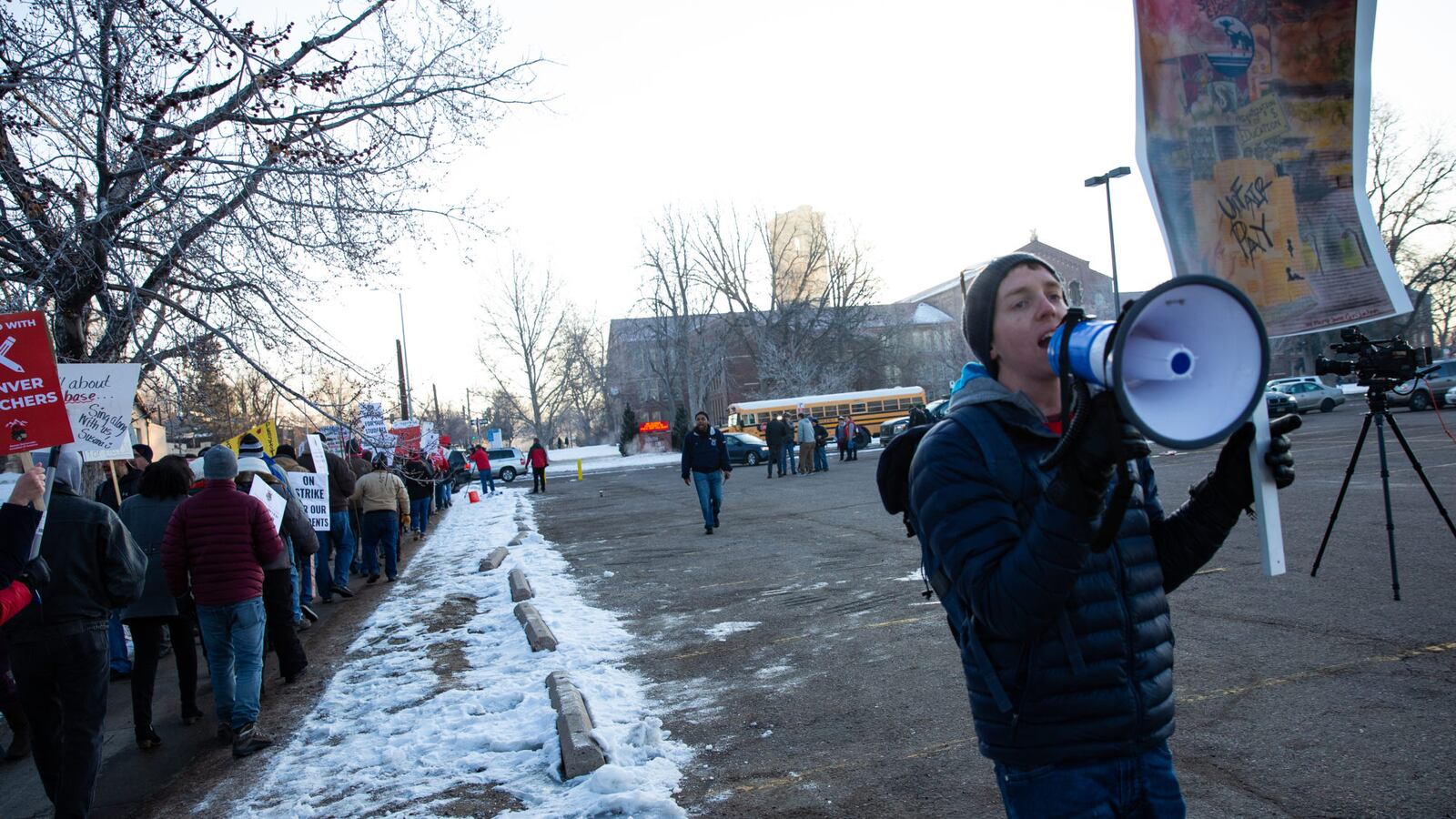I’m a Denver social studies teacher, and I am striking today with my colleagues as we fight to make teaching in Denver schools a sustainable career.
Yes, it must be noted that Denver Public Schools is top-heavy, and more of the district’s funds should be directed toward professionals who have direct contact with students. But amid this pitched battle between district and union, it’s also important to realize that our current moment does not exist in a vacuum.

Twice in the last six years, we’ve watched ballot initiatives that would have significantly increased Colorado education funding fail. Amendment 73, which lost last fall, was projected to raise $1.6 billion a year. Much of this revenue would have gone to local districts, which could have boosted teacher salaries and added programming for students.
Colorado’s Taxpayer Bill of Rights played a significant role in creating this situation, through its draconian limits on our representatives’ ability to raise additional needed funds and its requirement that ballot measures effectively be presented to the public with the costs as a headline and the benefits as a footnote.
But there are other forces at work here, too. Last year, the state’s Chamber of Commerce and business-oriented lobbying groups celebrated the demise of Amendment 73, the latest attempt to bring Colorado’s education funding to an appropriate level — even as some business leaders have expressed concern over the lack of fully prepared graduates.
The result? Denver Public Schools’ and the teachers union’s proposals are currently separated by $5 to 8 million. While our state’s $345 billion economy booms, we are fighting for scraps.
It shouldn’t be this way. An investment in teachers is an investment in our students, and in our civic and economic future. This is challenging, essential work that requires us to contend with competing answers to a recurring question: What is the purpose of schooling? As teachers, we work to balance many answers, from teaching our subject matter to instilling work skills, modeling interpersonal skills, developing citizens, and cultivating creativity.
As a social studies teacher, I’m driven to help my students understand the world as it is while also giving them the tools to reimagine it. So as my colleagues and I strike, I hope my students and my neighbors will think about what education activist Margaret Haley said 115 years ago.
“A grave responsibility rests on the public school teachers and one which no fear of opposition or misunderstanding excuses them from meeting,” she said. “It is to organize for the purpose of securing conditions that will make it possible for the public school, as a democratic institution, to perform its proper function in the social organism, which is the preservation and development of the democratic ideal.”
This is why we are organizing, today and in the future. We deserve pay that is commensurate with the demands of our work and a level of education investment that reflects the vital importance of our schools.
When the district and the union reach an agreement, which I am confident will happen soon, we will be closer to that goal — but we will not be there yet. Whereas teachers in West Virginia and Arizona were able to pressure their legislators to raise pay statewide, Denver teachers are stuck negotiating with a district starved of funding from above. Our state cannot endure this neglect forever.
The next time education is on the ballot, I hope Coloradans will invest in our students and our future.
Peter Wright is a teacher at Denver’s Northfield High School, serving students from Stapleton, Park Hill, Montbello, Green Valley Ranch, and beyond.
About our First Person series:
First Person is where Chalkbeat features personal essays by educators, students, parents, and others trying to improve public education. Read our submission guidelines here.

